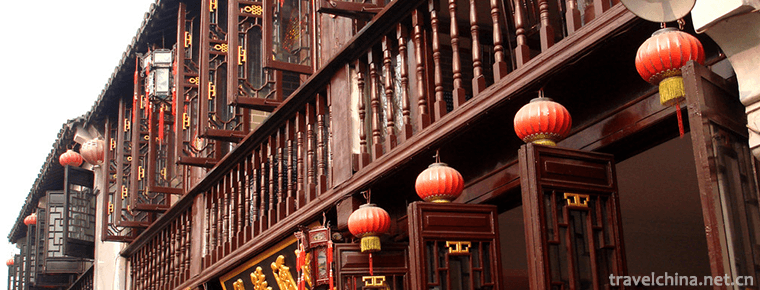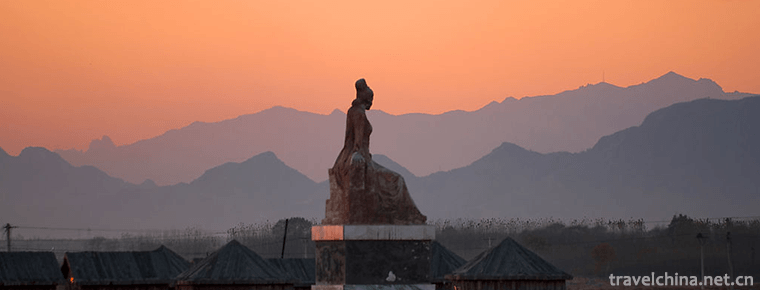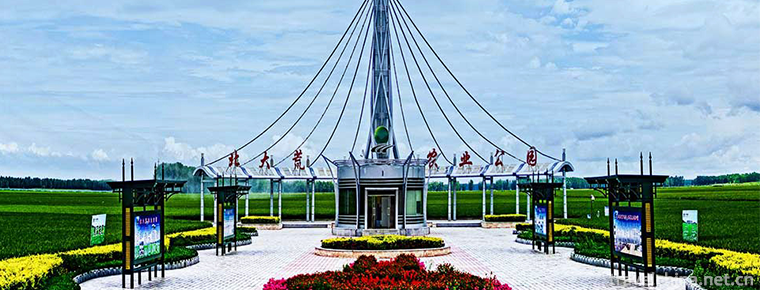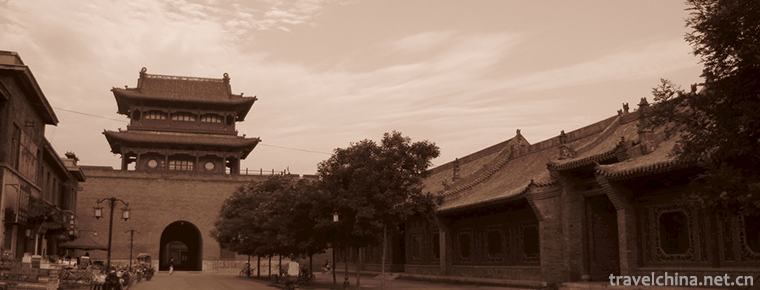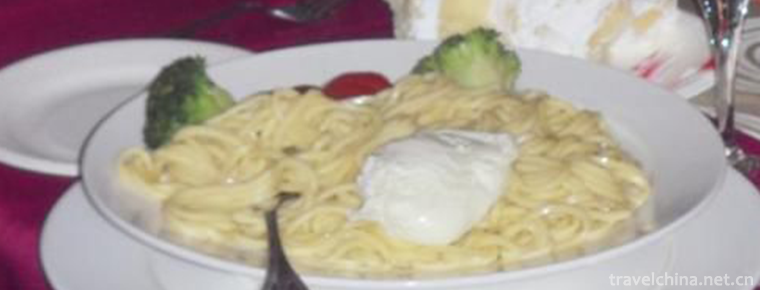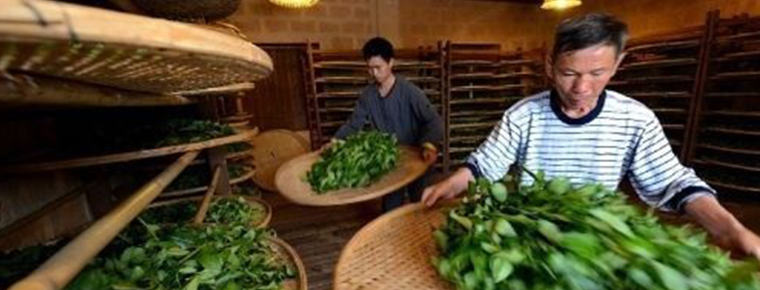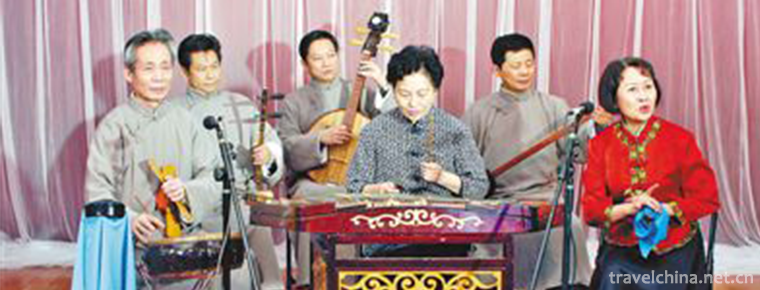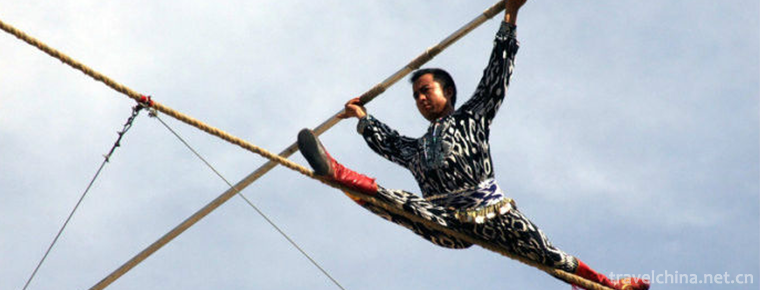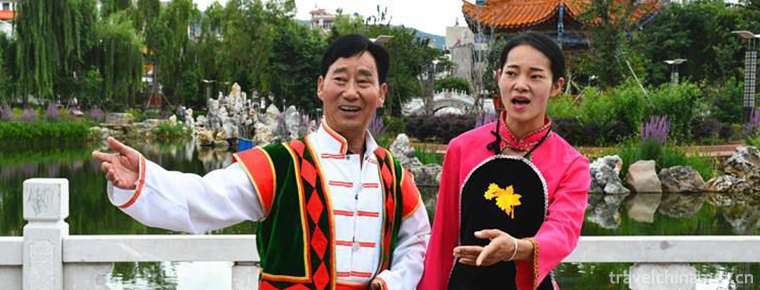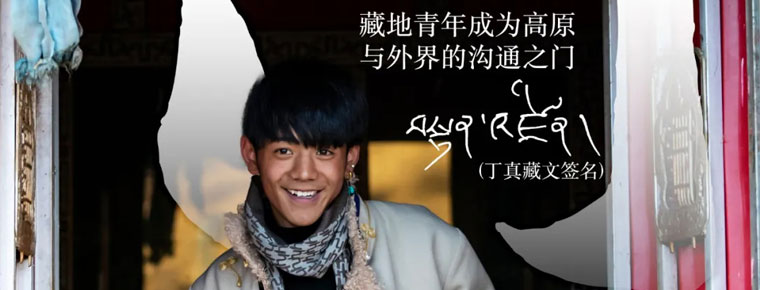Bao Xiaosu Temple
Baoxiao Sugong Temple, abbreviated as "Baogong Temple", is located on a mound in the east section of Huancheng South Road, Hefei City, Anhui Province. It is the main ancient building complex of Baohe Park. The word "filial piety" was given to him by Song Renzong after Baogong's death, in order to evaluate and affirm his loyalty and filial piety.
Baogong Temple is a public Temple commemorating Bachelor of Song Long Tuge, Minister of Rites and Yin Baowenzheng of Kaifeng Palace. In the first year of Hongzhi in the Ming Dynasty (1488), Songjian, the prefecture of Luzhou, built the Baogong Academy here, so it was called the Baogong Temple, and had the nickname of "Fragrant Flower Pier".
Baogong Temple is a closed courtyard with white walls and green tiles. The main building is Baogong Pavilion Hall. The statue of Bao Zhenggao sits upright. The statue of Bao Zhenggao is inlaid with black stone carvings. It shows the dignity and dignity of the Black-faced Baogong who has "iron face and selflessness". On the west side of the pavilion is accompanied by the Quxie Gallery; on the east side is a hexagonal Longjing Pavilion, with an ancient well named Lianquan. It was declared a provincial cultural relic protection unit in 1981.
building structure
Baogong Temple covers an area of 1 hectare. It consists of the main hall, the second hall, the East-West matching hall, the half-wall corridor and the stele pavilion. The style is simple and solemn. There are bronze statues of Baogong, dragons, tigers, dog bronzes, wax statues of Baogong's judgment case, inscriptions and tablets of Kaifeng Mansion, historical relics and historical materials of Baogong.
Baogong Temple has main hall, Huilanxuan, Qingxinting Pavilion, Zhidaofang, Dongxuan and other buildings.
Inscribed on the arch of the outer corridor on both sides of the temple are four striking characters: "indomitable", "cowardly". On the Black-painted gate under the big plaque of "Baogong Xiaosu Temple", there are couplets of "loyal and virtuous generals" and "moral heirlooms" with gold letters on the red background.
It is said that when he was young, Bao Gong often came here to study in memory of Fangting Pavilion, which is the stream in the southwest of the ancestral temple.
The Lianquan Pavilion in the southeast corner of the ancestral temple has wells in the pavilion, and the stone wall inside the pavilion is inscribed with "The Book of Fragrant Flower Pier Well Pavilion". It is said in the record that a Taishou drank the spring water here and had a headache, which turned out to be a corrupt official. Several people drank the water and felt that the water was as sweet as honey, and they were all good people.
So the well is called Lianquan. In 1998, Hefei has produced Lianquan beer to express its nostalgia and respect for Baogong.
Story
There is another story about Baohe outside the pavilion. When Emperor Renzong enveloped Baogong as a scholar of Longtuge University, he also rewarded him with half of Luzhou City. Who knows that Baogong said, "Officials are for the country and the people, not for the reward, so I don't want to."
Renzong listened to the secret praise, but felt no reward at all. He was too upset to go. So he said, "Then reward you the artificial river in front of the Baojiamen Gate!" Bao Gong thought: rivers are no better than fields. They are not easy to divide, sell, be rich or be poor. He accepted them with thanks.
Strange to say, there are a lot of lotus root and silk in the world, and the lotus root is broken, but there are few lotus root and silk in the Baohe River. People say that this is because of Baogong's selflessness.
Huilanxuan is located in the west of the main hall, facing water in the East and north. In ancient times, Huilanxuan was a place for officials and literati to enjoy summer banquets.
In addition, there are "Straight Way Square" and "Clear Heart Pavilion" in Bao Zheng's poem Tinjun Zhaibi: "Clean Heart is the root, Straight Way is personal experience." He believes that honesty is the foundation of governing the world, and integrity is the criterion of human beings.
Therefore, Baogong Temple is not only a unique tourist attraction, but also a good place to teach people.
stone engraved with characters or designs
There is an intriguing stone inscription in Baogong Temple. This is the inscription "Song Privy Deputy Envoy Shangshu Xiaosu Baogong Cemetery" which was cleared from the tomb of Baozheng in Daxing Ji in the eastern suburb of Hefei City in April 1973. This inscription describes Baozheng's life in more detail than "Song Shi Baozheng Biography". It can play a supplementary role in history and is very precious.
In the tablet, Bao Zheng's several acts of selflessness and uprightness are described. Among them, there are two: when Bao Zheng was in his hometown when he was in charge of Luzhou prefecture, his temperament was straightforward, and neither his relatives nor his relatives were rejected.
At that time, one of his relatives was accused of breaking the law and was brought to the palace. Bao Zheng was selfless and treated according to law. Zhang Yaozuo was the uncle of Zhang Guifei, Renzong's favorite concubine. He was immoral and incompetent. He was awarded four military and political posts by Renzong only on the basis of his relatives. Aiming at Emperor Renzong's appointment of relatives, Bao Zheng specially wrote a play called "Please Never Fall Within".
Later, he continued to play a few words, elaborating on the principle that "great grace can not be frequent and false, and the mass heart can not be violated." He believed that "false frequency, then damage the authority; contrary to solid, then threaten chaos".
Due to Bao Zheng's reasoning, Renzong finally "felt his loyalty" and had to remove Zhang Yaozuo's two important positions.
Other information
Visitors to Kaifeng, Henan Province, mostly want to explore Baogong's traces. However, because Kaifeng has been flooded by the Yellow River for many times, the only stele handed down in the 21st century is the "Kaifeng Mansion Title" stele of the Northern Song Dynasty, which is now kept in the Kaifeng Museum.
The tablet inscribes the names and years of 183 people in Kaifeng Prefecture of the Northern Song Dynasty from the first to the last.
Because Bao Zheng is strict in law enforcement, unselfish and highly respected by the masses, people always touch his name when visiting the steles and praise him. Over time, his name has been rubbed away and deep marks have been engraved.
From this deep fingerprint, we can see the position of Baogong in the people's mind.
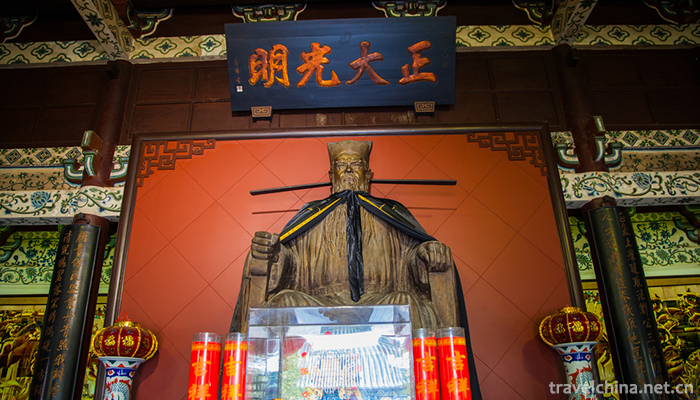
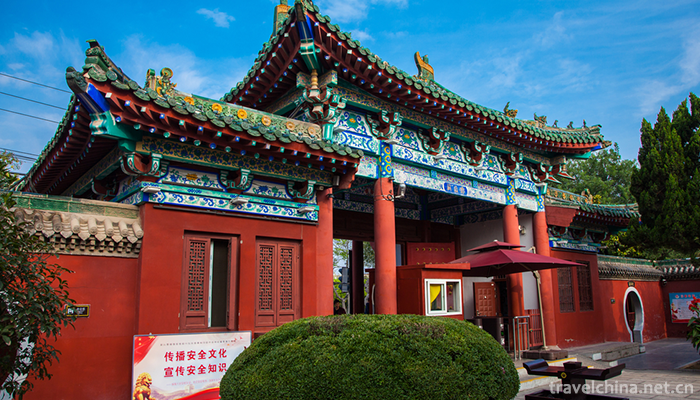
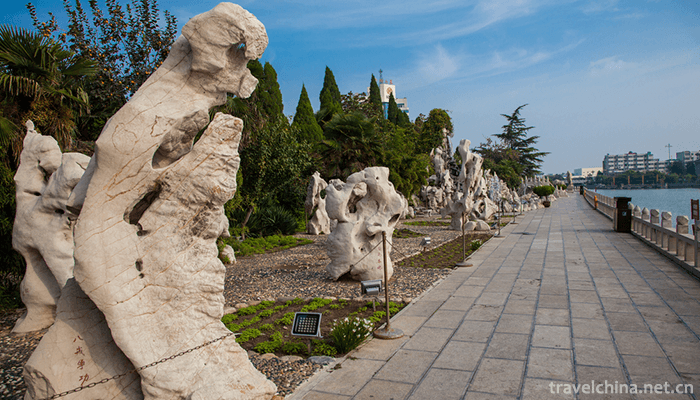
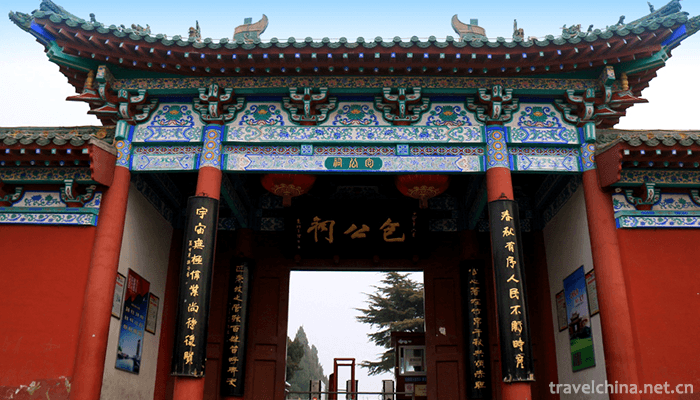
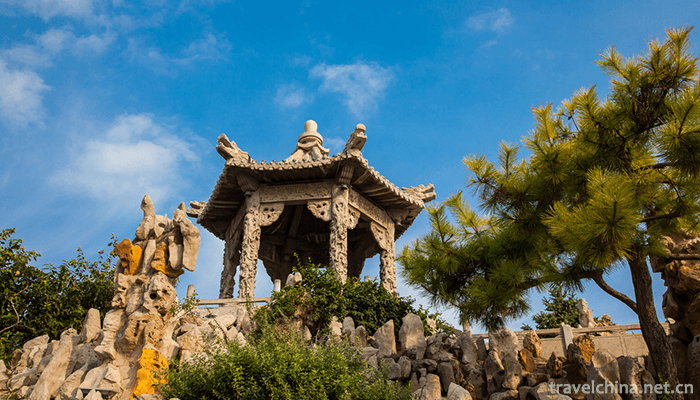
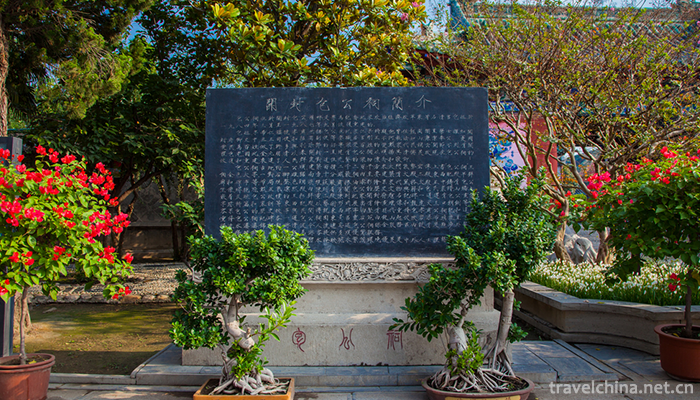
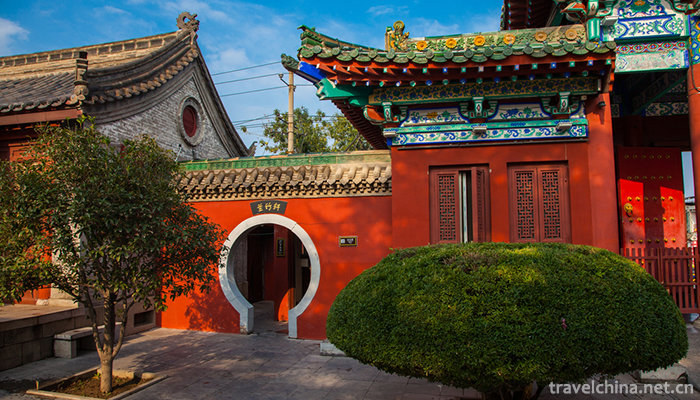
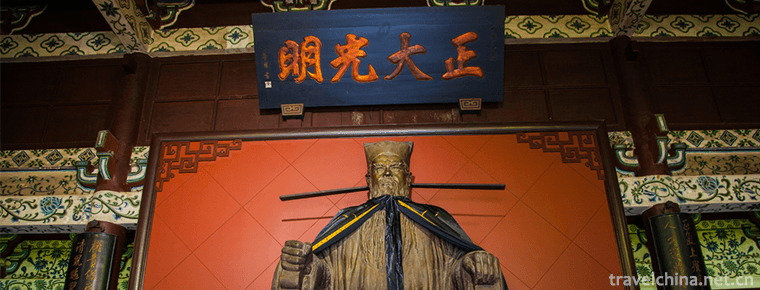
Bao Xiaosu Temple
-
Zhouzhuang Town
Zhouzhuang Ancient Town is a preferred site for world cultural heritage and the first batch of national 5A tourist attractions. It is located in the southeast of Suzhou City and at the junction of Kun
Views: 358 Time 2018-12-06 -
Legend of Meng Jiangnu
Meng Jiangnu's story, as one of the four love legends in ancient China (the other three are Niulang and Zhinu, Liang Shanbo and Zhu Yingtai, and The Legend of White Snake), has been widely circulated
Views: 298 Time 2018-12-23 -
Beidahuang Modern Agricultural Park
Beidahuang Modern Agricultural Park, located at No. 146 Xiangfu Road, Xiangfang District, Harbin City, covers an area of 667,000 square meters and is a "national AAAA-level tourist attraction&quo
Views: 190 Time 2018-12-26 -
Pingyao Ancient City Scenic Spot
Pingyao Ancient City is located in Pingyao County, central Shanxi Province. It was founded in Xuanwang Period of Western Zhou Dynasty (827-782 BC).
Views: 170 Time 2019-02-07 -
Xinjiang Tianshan
Tianshan Mountain in Xinjiang, the eastern part of the Tianshan Mountains, is also the main part of the Tianshan Mountains and the world natural heritage. Tianshan Mountain is one of the seven major m
Views: 216 Time 2019-02-25 -
Baxian longevity noodles
Make it with Udonghua noodles. With turtle, old turtle boiled soup, turtle has a nourishing role, old turtle represents longevity. Take shrimp, squid, sea cucumber, black fish balls
Views: 212 Time 2019-03-27 -
Production Techniques of Flower Tea
Jasmine tea, also known as jasmine fragrance, is the tea and jasmine flowers to blend, bass, so that tea leaves absorb flower fragrance into tea, tea fragrance and jasmine fragrance interactively inte
Views: 196 Time 2019-05-04 -
Sichuan Yangqin
Sichuan Yangqin is one of the representative folk songs of Sichuan Province, which is popular in Chengdu, Chongqing, Luzhou, Zigong and other cities and regions. In the early period, it was also calle
Views: 210 Time 2019-06-16 -
Uygur Dawazi
Dawazi is an ancient traditional acrobatic performing art of the Uygur people. "Da" means "hanging" in Uyghur, and "Wazi" means someone who likes to do something. The wor
Views: 102 Time 2019-06-26 -
Yao an Bazi Cavity
On June 7, 2008, Yao'an Baziqiang, declared by Yao'an County, Yunnan Province, was listed in the second batch of national intangible cultural heritage list with the approval of the State Council. Heri
Views: 339 Time 2019-07-11 -
Huangjing Nature Reserve
This entry is lack of overview map, supplement the relevant content to make the entry more complete, but also quickly upgrade, come on!
Views: 325 Time 2020-10-16 -
About Ding Zhen Video
In November 11th CCTV news and Oriental tiktok were put on a short video of the tremble. Ding Zhen, the "sweet boy" in the video, triggered a phenomenal network event with a transmission volume of more than 5 billion times. At the same time,
Views: 162 Time 2020-12-06
